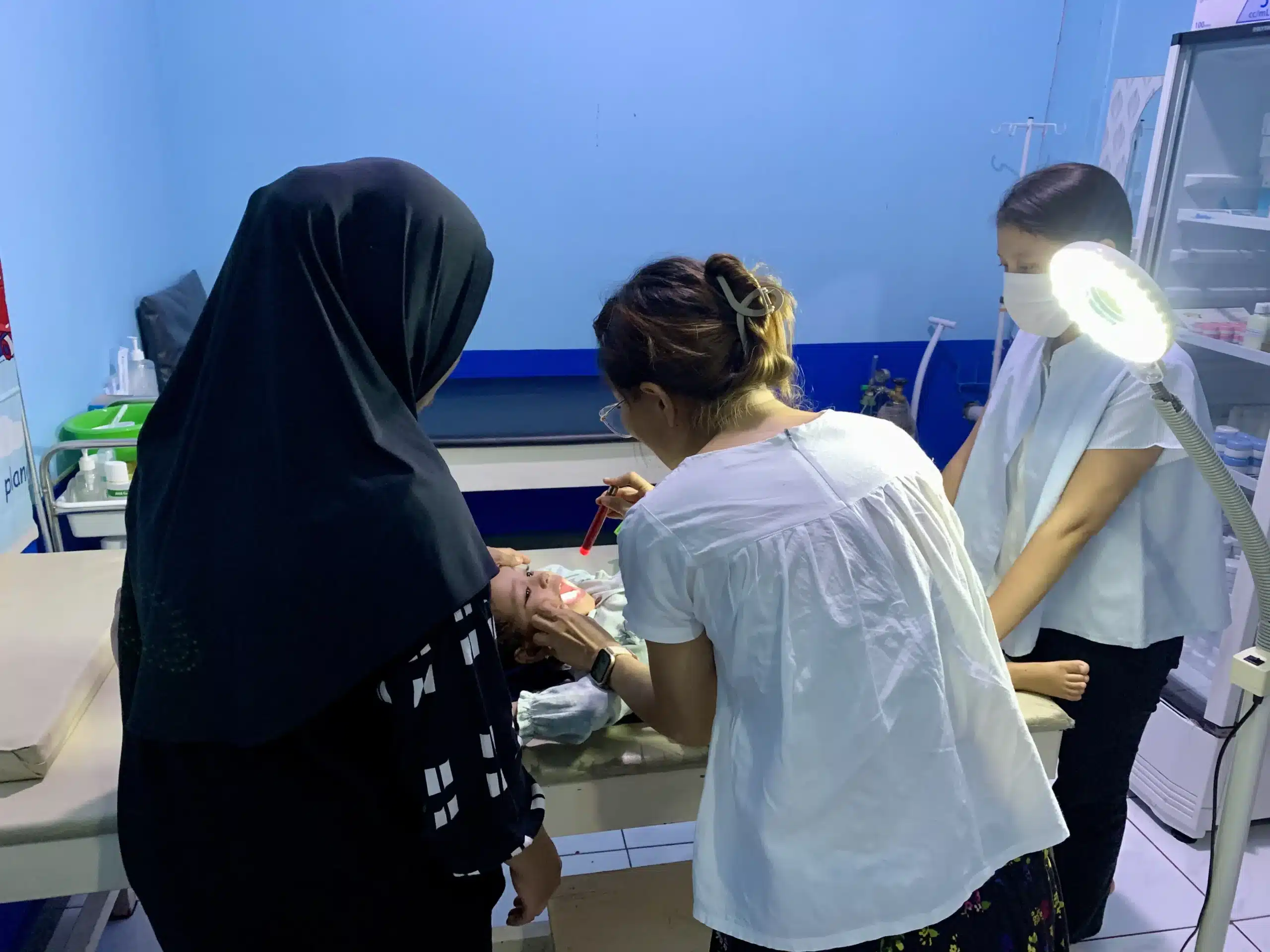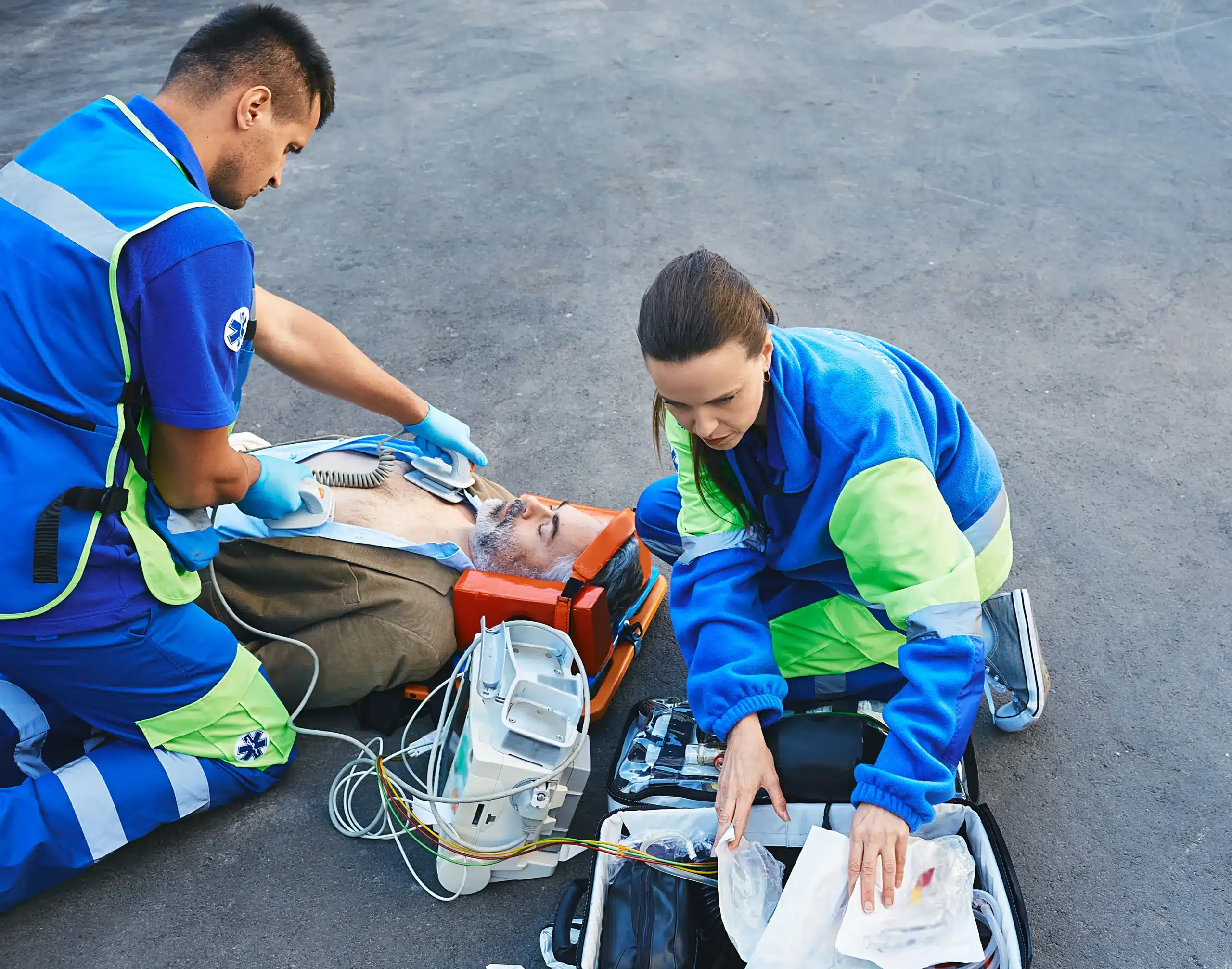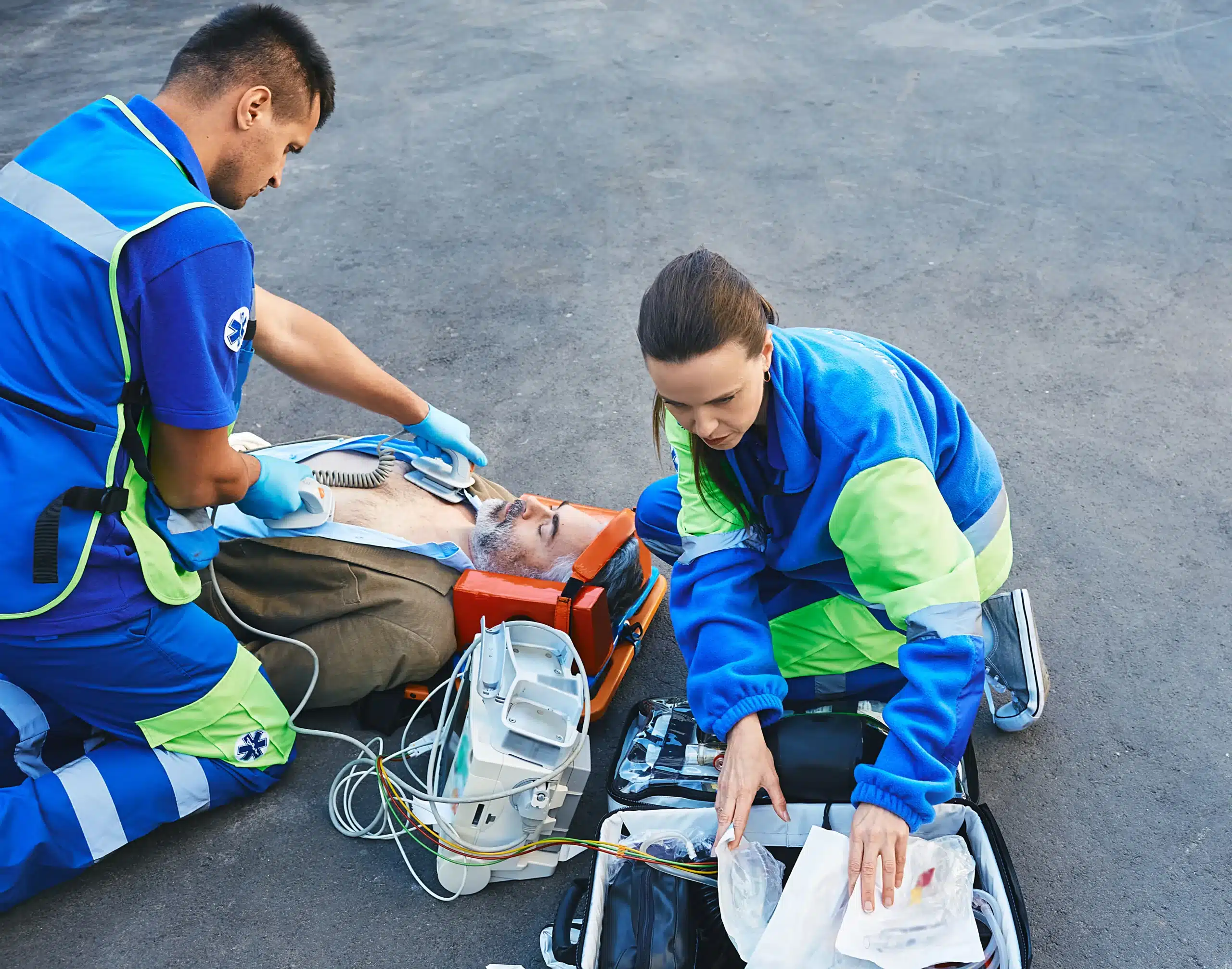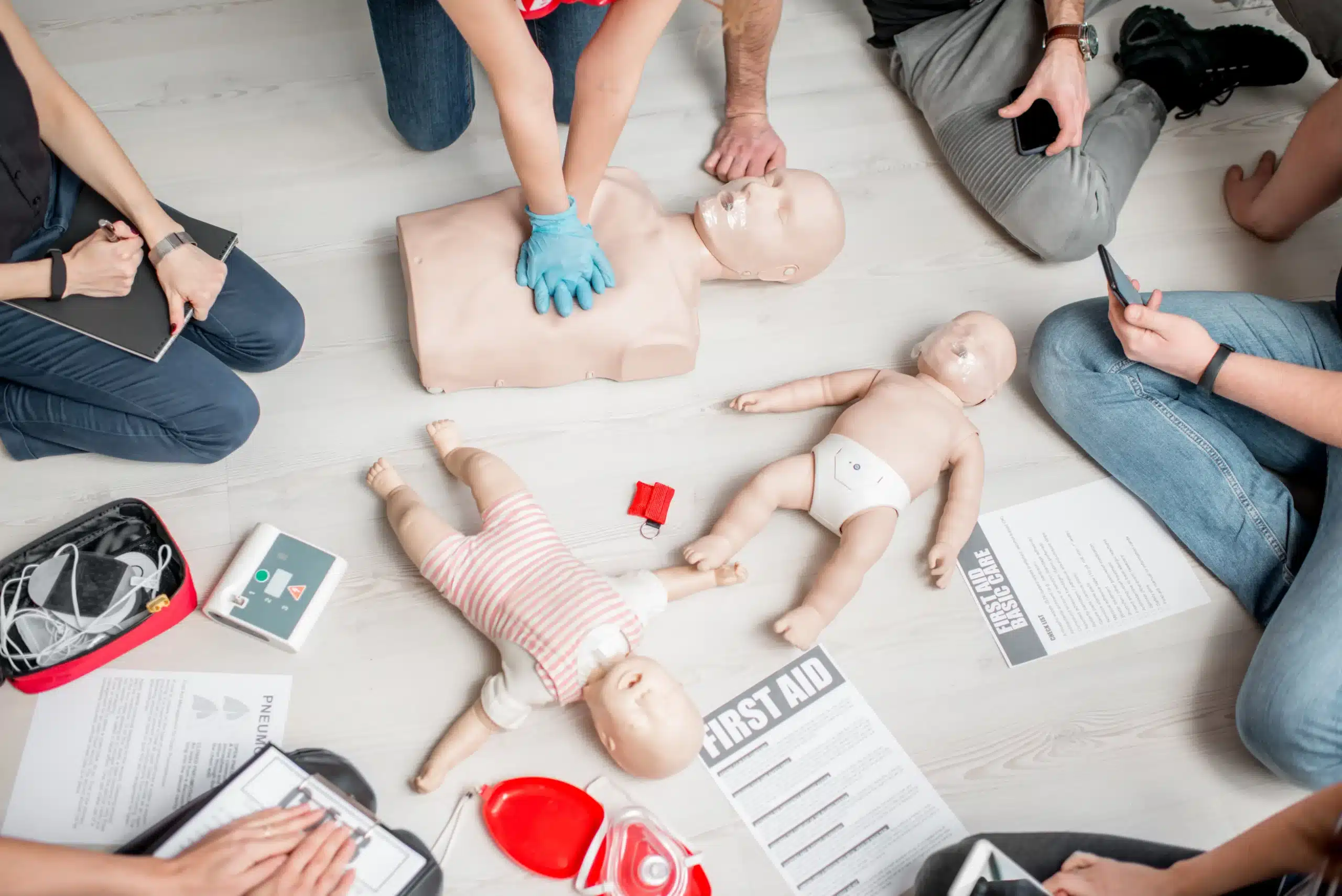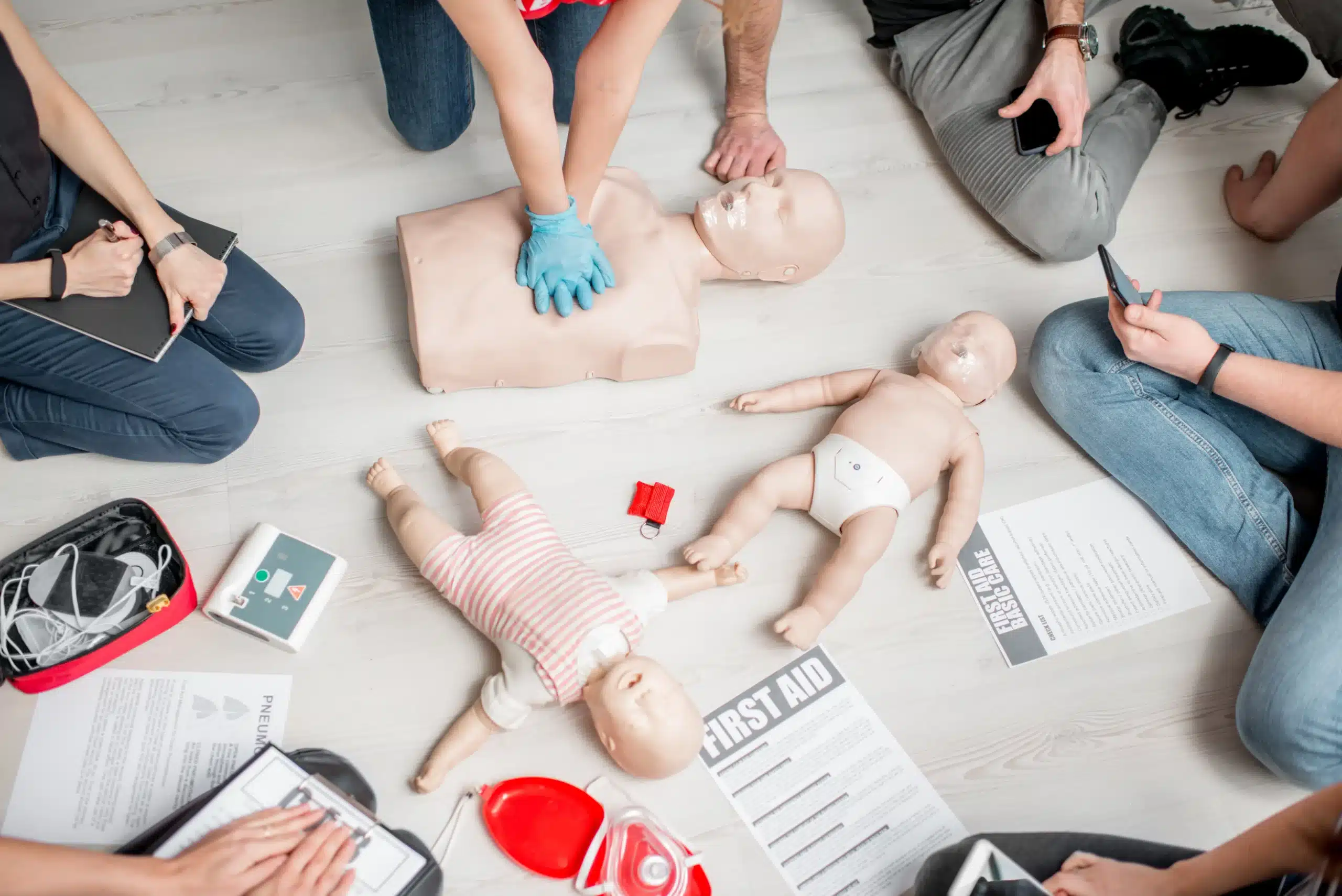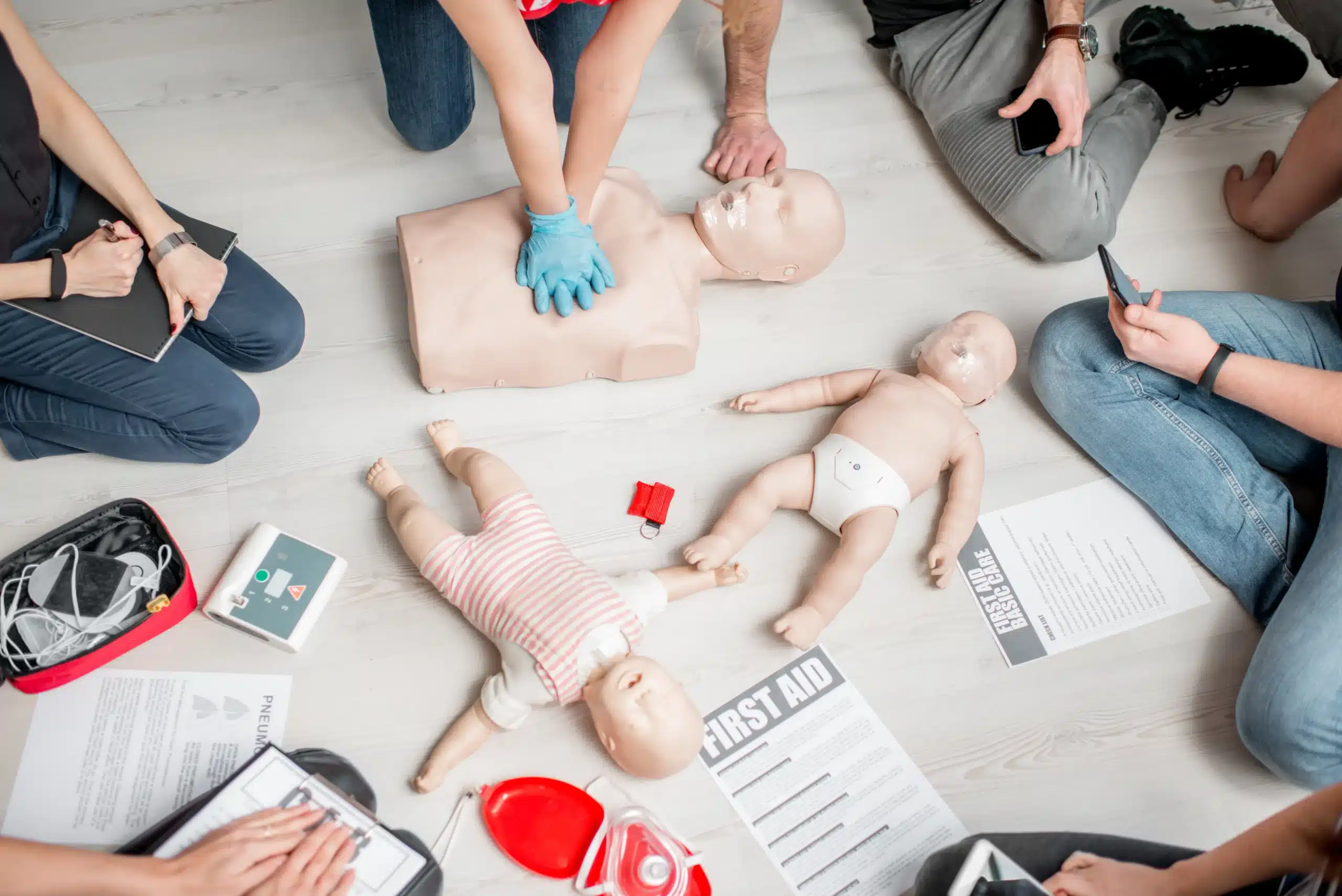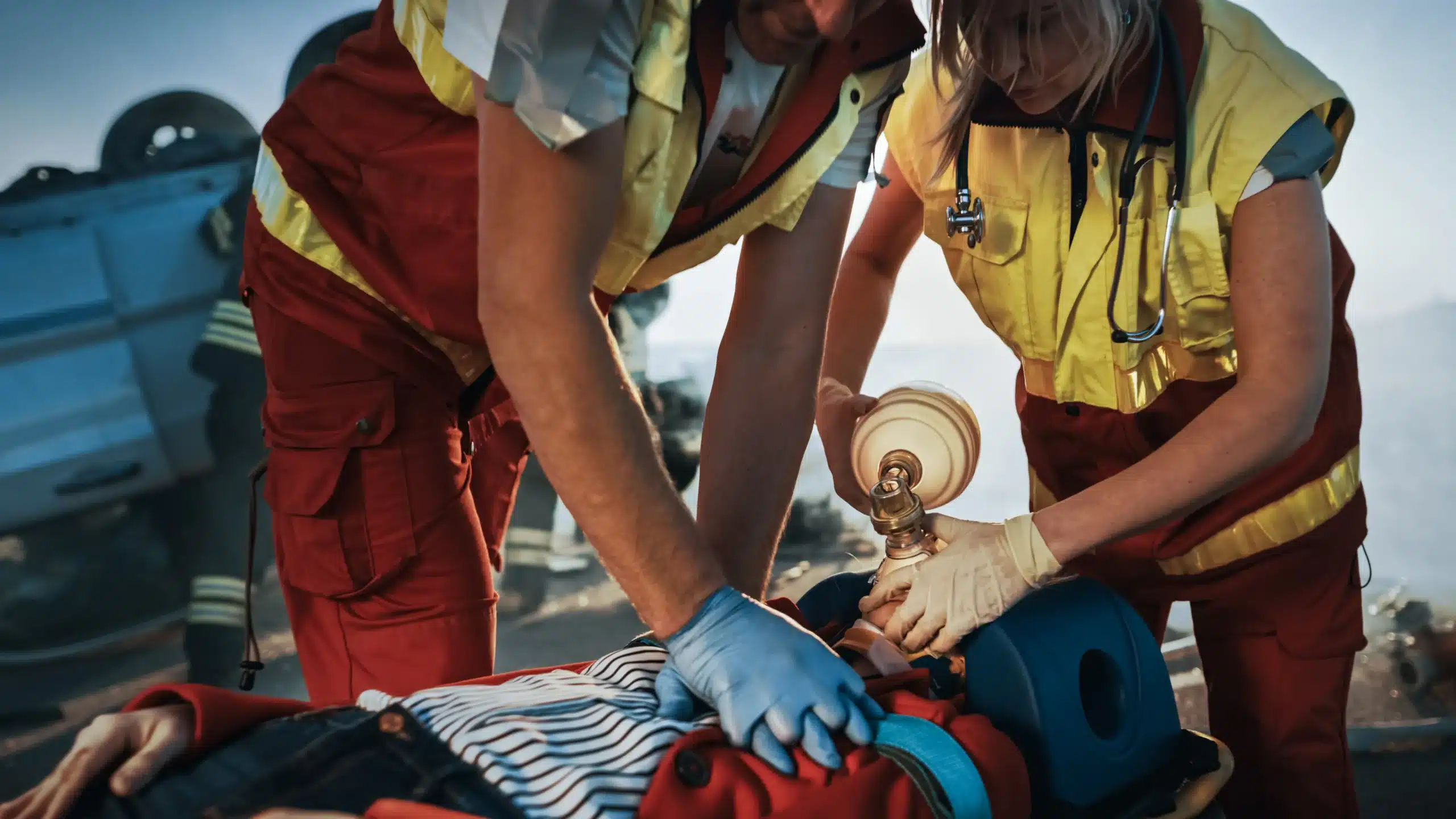Life can throw curveballs, and being equipped to handle medical emergencies is a powerful skill. BLS certification empowers you to respond effectively in critical situations, but staying current requires regular renewal. This article serves as your roadmap to BLS renewal, covering everything from locating “BLS renewal near me” to understanding the value of different course formats and providers. We’ll delve into the eligibility criteria, the significance of hands-on practice, and how to choose a course that aligns with your learning style and schedule. We’ll also explore the benefits of group enrollment and how to find potential discounts.
Key Takeaways
- Regular BLS renewal ensures you’re equipped with the latest life-saving techniques and maintains your professional qualifications. This refresher is crucial for effective emergency response.
- Consider provider reputation, hands-on practice, and overall value when selecting a renewal course. Explore various options, from local healthcare institutions to online providers, to find the best fit.
- Tailor your learning experience by choosing a course format that suits your schedule and preferences. Whether you opt for in-person interaction or online convenience, prioritize a course that reinforces practical skills.
What is BLS Renewal & Why is it Important?
BLS renewal is how you keep your Basic Life Support certification current. It’s a refresher course and exam, typically required every two years. Think of it like renewing your driver’s license—you periodically demonstrate you still have the skills and knowledge to handle emergencies. This is especially important for healthcare providers, but also valuable for anyone who might need to perform CPR.
Why is staying up-to-date so crucial? For several important reasons. First, guidelines for resuscitation and emergency care can change. Renewal courses cover these updates, ensuring you’re using the most effective techniques. Bay Area CPR discusses the importance of staying current with these life-saving skills. Second, many professions, from healthcare to fitness, require valid BLS certification as a condition of employment. Heart Start CPR emphasizes how crucial BLS certification is across various professions. Finally, regular practice through recertification helps you maintain proficiency in essential skills like chest compressions and rescue breaths, leading to better outcomes in real emergencies. BLS renewal isn’t just a formality—it’s an investment in your ability to provide effective, potentially life-saving care.
Find BLS Renewal Courses Near You
Finding the right BLS renewal course shouldn’t feel like searching for a needle in a haystack. With a little planning, you can easily locate a course that fits your schedule, budget, and learning style. Here are a few avenues to explore:
Online Search Tools & Directories
Start your search online using search engines like Google or specialized directories for CPR and BLS training. A quick search for “BLS renewal near me” or “BLS classes in [your city]” will generate a list of potential providers in your area. When reviewing your options, consider factors like the provider’s reputation, course content, instructor experience, hands-on practice opportunities, certification validity, and overall cost. Kahawatungu offers helpful advice on what to look for in a BLS certification provider. Reading online reviews and testimonials can also give you valuable insights from other students.
Local Healthcare Institutions
Hospitals, clinics, and other healthcare facilities often offer BLS renewal courses for their staff and the wider community. Check the websites of hospitals in your area or contact their education departments for information on upcoming courses. These institutions often have experienced instructors and provide high-quality training. The American Heart Association also offers resources for BLS renewal, including blended learning and instructor-led courses, making it easier to find a format that suits your needs.
Community Colleges & Universities
Many community colleges and universities offer continuing education programs that include BLS renewal courses. These courses are often more affordable than those offered by private providers. Check the websites of local colleges or contact their continuing education departments for more information. San Francisco CPR Classes provides a helpful guide on BLS renewal in San Francisco, including information on costs, potential discounts, and enrollment procedures. Their insights on pricing can give you a benchmark for what to expect in other areas.
Top BLS Renewal Course Providers
Finding the right BLS renewal course is crucial for healthcare professionals. Several reputable organizations offer high-quality training programs. Here are a few leading providers to consider:
American Heart Association
The American Heart Association (AHA) is a well-respected authority in CPR and emergency cardiovascular care. Their BLS renewal courses adhere to the latest scientific guidelines and are widely accepted in the healthcare industry. The AHA offers a comprehensive BLS recertification course that is entirely online, allowing healthcare professionals to complete their training at their own pace. This flexibility is a major plus for busy schedules. The courses include all necessary study materials, ensuring participants are well-prepared for their renewal. For those seeking in-person training, the AHA also accredits training centers like Safety Training Seminars.
American Red Cross
The American Red Cross is another trusted name in emergency training. They offer BLS renewal and recertification courses designed for healthcare providers. These courses focus on refreshing essential skills and knowledge, helping to prevent certification lapses.
Safety Training Seminars
Safety Training Seminars offers convenient, in-person BLS renewal courses right here in the East Bay. Serving Walnut Creek, Concord, and Pleasant Hill, they provide American Heart Association-compliant training at competitive prices, typically ranging from $50 to $150. You can find their latest course schedules and pricing on their website. They also offer a low price guarantee.
National CPR Foundation
The National CPR Foundation provides BLS recertification coursework tailored for healthcare professionals. Their training covers a wide range of common medical emergencies, ensuring participants develop the latest knowledge and skills for effective response. This focus on practical application can be particularly beneficial for those working in fast-paced healthcare environments.
ProTrainings
ProTrainings offers a variety of online BLS courses designed to meet the needs of healthcare professionals. Their courses feature video demonstrations and interactive content, creating an engaging learning experience that makes it easier to grasp essential concepts. This approach can be particularly helpful for visual learners.
Compare BLS Renewal Course Formats
Choosing the right BLS renewal course format depends on your learning style, schedule, and preferences. Let’s break down the pros and cons of each option: in-person, online, and blended learning.
In-Person Courses: Hands-on Learning
In-person BLS renewal courses offer a structured, hands-on learning environment. You’ll work directly with an instructor and other students, practicing skills on mannequins and getting real-time feedback. This format is ideal for those who learn best through tactile experiences and thrive in a classroom setting. In-person training emphasizes real-world application, ensuring you can confidently apply your skills in emergencies. However, in-person classes require a fixed schedule and may not be as flexible for those with busy lives. If you prefer a more structured, hands-on approach and value direct interaction with an instructor, an in-person course might be the right fit. Learn more about in-person BLS courses.
Online Courses: Flexibility & Convenience
Online BLS renewal courses offer unparalleled flexibility and convenience. You can learn at your own pace, anytime, anywhere, fitting the coursework around your existing commitments. This format often involves interactive modules, videos, and quizzes to reinforce learning. While online courses offer convenience, they may not provide the same level of hands-on practice as in-person training. Make sure the online course you choose aligns with the American Heart Association guidelines and includes a skills check component. This format is perfect for those who prefer self-directed learning and need a flexible schedule. Explore online BLS renewal options.
Blended Learning: Best of Both Worlds
Blended learning combines the best of both online and in-person training. You’ll complete the cognitive portion of the course online, at your own pace, then attend a shorter, in-person skills session to practice and demonstrate competency. This format offers a good balance of flexibility and hands-on learning, making it a popular choice. Blended learning allows you to absorb information independently and then apply it practically under the guidance of an instructor. Consider a blended learning approach to BLS renewal.
Understand BLS Renewal Costs & Value
Knowing the cost of BLS renewal and what your money gets you is key to making smart decisions. Let’s break down the expenses, explore potential discounts, and highlight the value packed into these essential courses.
Average Costs by Provider
BLS renewal course fees vary based on location, provider, and course format. In cities like Walnut Creek, Concord, and Pleasant Hill, expect prices to typically range from $75 to $150. Safety Training Seminars offers competitive rates and a low-price guarantee, ensuring you get the best value. Always compare prices from different providers before committing to a course. For those looking for the most affordable options, be sure to inquire about discounts and explore various training centers in your area.
What’s Included in the Course Fee
Your BLS renewal course fee typically covers more than just the instruction. Most providers include essential study materials, either online or in print, as part of the package. This often includes access to online resources, practice tests, and sometimes even a digital copy of the BLS Provider Handbook. Be sure to confirm exactly what’s included with your chosen provider before registering. Knowing what materials are provided upfront helps you budget effectively and ensures you have everything you need to succeed.
Discounts & Special Offers
Many training centers offer discounts for group enrollments, making it a cost-effective option for workplaces or groups of friends. Some providers, like EHS Practice, offer substantial discounts for bulk registrations. Keep an eye out for special promotions or seasonal offers that can help you save even more. A little research can go a long way in finding the most budget-friendly option.
Group Enrollment Benefits
Beyond cost savings, group enrollment in BLS renewal courses offers several advantages. American Safety Training Institute, for example, specializes in group training, allowing teams to learn together and build camaraderie. This shared learning experience can foster a stronger sense of teamwork and preparedness in professional settings. Coordinating training for a group also simplifies scheduling and ensures everyone stays current on their certifications. This streamlined approach can be particularly beneficial for busy workplaces.
BLS Renewal: Eligibility & Prerequisites
Before you sign up for a BLS renewal course, it’s helpful to understand the requirements. Knowing the rules around timing and what’s involved in the renewal process will make finding the right course much easier.
Current Certification Requirements
Generally, to renew your BLS certification, you’ll need a current BLS provider card from a recognized organization like the American Red Cross or the American Heart Association. Some providers may accept certifications that have recently expired, but it’s always best to check their specific renewal policies. This requirement ensures you’re already familiar with core life-saving techniques.
Expiration Timeframes & Grace Periods
Most BLS certifications are valid for two years. Keep track of your expiration date! While some training centers might offer a short grace period for renewals, it’s wise to plan your BLS renewal well in advance to avoid any lapse in your certification. A lapse could mean having to take the full BLS course again, rather than the shorter renewal course.
Skills Assessment Options
BLS renewal courses typically involve a skills assessment to confirm your proficiency in essential life-saving procedures. You’ll likely practice CPR, rescue breathing, and how to help someone who is choking. You’ll also review how to use an Automated External Defibrillator (AED). Many providers offer both in-person and online renewal courses, so you can choose the format that best fits your schedule and learning style. Once you successfully complete the course and any required exams, you’ll receive a renewed BLS certification card.
Choose the Right BLS Renewal Course
So you’re ready to renew your BLS certification—great! Choosing the right renewal course is an important step. It’s not just about checking a box; it’s about maintaining your lifesaving skills. This section will guide you through key factors to consider, questions to ask potential providers, and how to make the best decision for your needs.
Factors to Consider
Finding a suitable BLS renewal course involves more than just proximity. Think about the provider’s reputation. Look for established organizations like the American Heart Association with a history of quality training. Consider what the course covers, the instructor’s expertise, and, most importantly, the amount of hands-on practice you’ll receive. Hands-on training is crucial for building confidence and muscle memory. Also, check the certification’s validity period—how long will it last before you need to renew again? Finally, weigh the cost against the value. A low price isn’t always the best deal if it sacrifices quality instruction or comprehensive materials. Our low price guarantee ensures you receive top-tier training without overspending.
Questions to Ask Providers
Don’t hesitate to ask potential providers some key questions. Inquire about their eligibility requirements for renewal courses. Some providers may require proof of your current certification. Ask about online, in-person, and blended learning options to find the format that fits your schedule. If you prefer in-person learning, see if they offer classes in convenient locations like Walnut Creek, Concord, or Pleasant Hill. Before signing up, review the latest American Heart Association BLS guidelines to refresh your knowledge and prepare for any updates in the curriculum.
Make an Informed Decision
Renewing your BLS certification is a commitment to maintaining your skills and providing the best possible care in emergencies. It’s an investment in your professional development and your ability to respond effectively under pressure. Take the time to research different providers, compare course formats, and consider your learning style. By weighing these factors and asking the right questions, you can choose a BLS renewal course that meets your needs and empowers you to continue making a difference. Whether you’re a healthcare provider or simply someone who wants to be prepared, the right BLS renewal course will equip you with the confidence and skills to handle any emergency.
Related Articles
- BLS Certification in Pleasant Hill: A Complete Guide
- BLS Renewal in Concord: Your Complete Guide – Walnut Creek CPR Classes
- BLS Courses in Walnut Creek: A Complete Guide
- BLS for Healthcare Providers in Walnut Creek: A Complete Guide – Walnut Creek CPR Classes
- Advanced Cardiac Life Support (ACLS) in Concord, CA – Walnut Creek CPR Classes
Frequently Asked Questions
Why is BLS renewal important? BLS renewal keeps your skills sharp and ensures you’re using the most current, effective techniques. Plus, many employers require a valid BLS certification. It’s an investment in your ability to confidently respond to emergencies.
How do I find a BLS renewal course near me? Start by searching online using keywords like “BLS renewal near me” or checking local hospitals, community colleges, and training centers like Safety Training Seminars. Also, consider online directories and resources from organizations like the American Heart Association.
What are the different BLS renewal course formats available? You can choose from in-person classes, online courses, or blended learning, which combines online learning with in-person skills practice. Each format has its own advantages, so consider your learning style and schedule when making your choice.
How much does BLS renewal cost? Costs vary depending on the provider, location, and course format. Expect to pay anywhere from $75 to $150 in areas like Walnut Creek, Concord, and Pleasant Hill. Look for providers that offer a low-price guarantee or discounts for group enrollments.
What are the prerequisites for taking a BLS renewal course? You’ll typically need a current (or recently expired) BLS provider card from a recognized organization like the AHA or the American Red Cross. Check with your chosen provider for their specific requirements.
